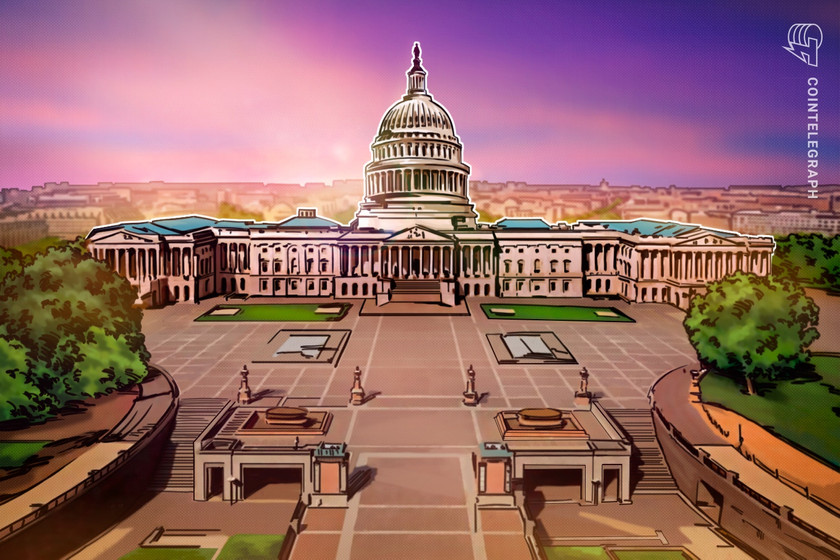We could use crypto regulation after FTX — but let’s start with basic definitions

Congress should start by addressing what cryptocurrencies are securities and what are commodities.
As a crypto CEO, I know how often our sector is misunderstood and criticized. Sometimes, the criticism is deserved because we have not always done our part to shine a light on the utility and use cases powering positive change. But other times, it’s based on the assumption that all players in this industry are the same, which is just not true.
Recently, skepticism reached new heights with the epic crash of FTX, one of the largest crypto exchanges in the world — and perhaps the largest-ever example of the need for regulatory oversight. Given the positioning of FTX, it was an incredible leap to see them face insolvency. When the news broke, we saw a massive downturn in the digital assets market. Consumers were left to decide whether FTX — or any entity in our space — is a safe steward of their funds.
Many may wonder if there is a future for crypto, and I understand the frustration with the hole the industry has created. But there is a future for blockchain and crypto, and we cannot lose sight of the utility and value of this technology to do meaningful things — from optimizing supply chains around the world to creating equitable access to the global financial system. The real question is how we build the future we want that inspired the development of this technology in the first place. And that answer relies in large part on standards (both technical and industry-wide) and rules, some of which need to come from our public officials.
Related: From The NY Times to WaPo, the media is fawning over Bankman-Fried
The United States federal government is positioned to lead. To do so, it needs to give the industry clarity and guidance by implementing thoughtful, principles-based regulation. This is the type of leadership that will help shape the “right” future, and with a newly elected Congress, it is a charge I am urging them to take up. The future of blockchain and all of the benefits it offers depends on it.
The industry must do its part to act transparently and in the best interests of consumers, despite the absence of regulation. But without oversight, we will continue to see examples of businesses failing to put consumers’ interests first. That’s why I am calling on Congress to pass three key measures in 2023 to provide consumers with the protections they need.
First, clarify the definition of the legal status of digital assets: When are digital assets classified as securities, commodities or something in between? And how is that defined? It is the government’s role to make this clear for both large and small participants — and not just pretend that clarity exists — because consumers are the ones losing.
Second, require stablecoins to be stable: The Terra collapse saw the disappearance of $60 billion in value overnight. Consumers need to be assured that stablecoins must be backed by high-quality liquid assets on a one-to-one basis. Stablecoins are essential to the real utility offered by blockchain. Rules of the road here are helpful to consumers and will lead to even more innovation.
Third, digital asset exchanges. As we have seen with FTX, consumers are exposed to risks when they trade and custody their assets with exchanges. While some of these risks are well understood, Congress must ensure that consumers have the safeguards necessary to engage with these platforms.
Related: My story of telling the SEC ‘I told you so’ on FTX
My experience on the content side of the web taught me the importance of early engagement with policymakers to help craft regulation for emerging technologies. But I learned this lesson the hard way — we did not engage. Instead, we asked the government to trust we would get it right on our own. We thought we had all the answers. Some regulations already existed for data collecting activities on the internet, but none accounted for the data collection technology companies were doing every day. Balancing our bottom line with consumers’ best interests created a big gap we thought we could manage. It is clear now that this led to a data privacy crisis where people became the product, and our collective and individual privacy vanished before our eyes.
I see certain parallels with blockchain, the new emerging technology. It’s critical that the ecosystems developing the products and services built upon this technology continue to work alongside the public sector to craft the regulations that will bring clarity and safeguards. I know the limitless potential of blockchain and am eager to help forge the public-private partnerships necessary to secure more stability across this industry. And I hope that a new Congress meets us halfway.
This article is for general information purposes and is not intended to be and should not be taken as legal or investment advice. The views, thoughts, and opinions expressed here are the author’s alone and do not necessarily reflect or represent the views and opinions of Cointelegraph.



